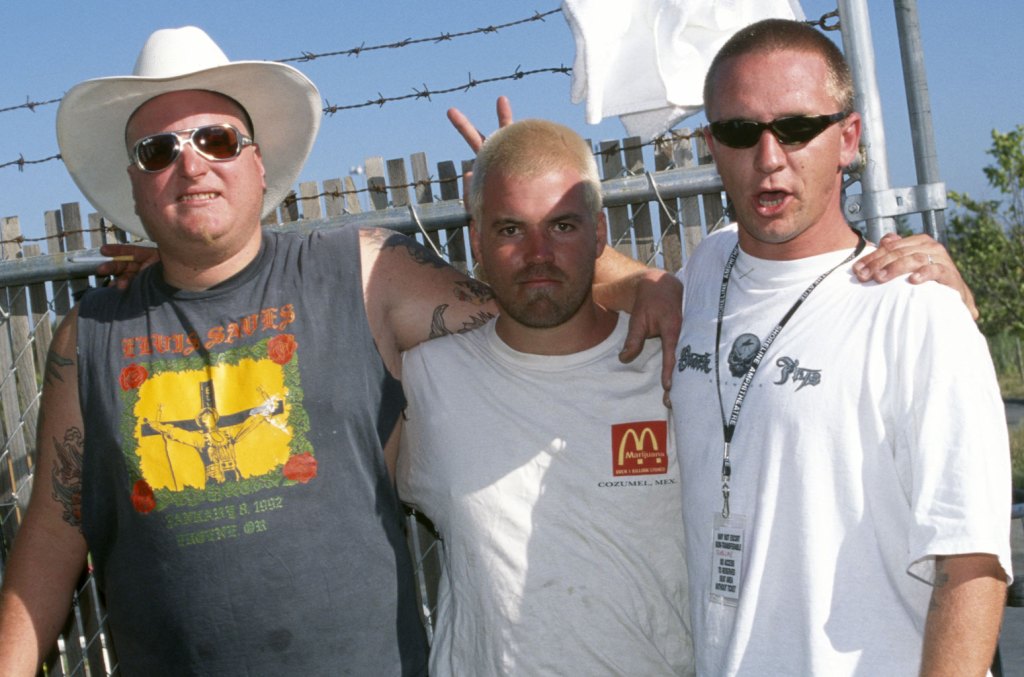Top music law firm King Holmes Paterno & Soriano is firing back at a legal malpractice lawsuit filed by the band Sublime, arguing that the group has “falsely and maliciously” sued to get out of paying their hefty legal bills.
A month after Sublime sued its former attorneys — Howard King, Peter Paterno and Joseph M. Carlone — over allegations of a “pattern of self-dealing,” the firm filed a scathing countersuit Monday (Mar. 4). In it, they argue that the band still owes the firm $100,000 in fees after abruptly ending a decades-long attorney-client relationship.
“While Sublime had the right to terminate its lawyers at any time, it has no right to sidestep its responsibility to pay fees it incurred,” the firm wrote. “Yet, in an obvious and pathetic attempt to do exactly that, plaintiffs, presumably at the prodding of reputationally challenged new advisors, have cynically elected to file a trumped-up preemptive malpractice suit falsely and maliciously accusing the law firm of conflicts of interest they claim caused them unspecified damages.”
Trending on Billboard
The filing from King Holmes aimed to rebut many of Sublime’s specific allegations, including the band’s accusation that the firm steered it into a merchandise deal without disclosing that the company was another one of the firm’s clients — a move Sublime claimed cost the band millions.
In Monday’s filing, the firm said it had disclosed that potential conflict of interest to the band members and that they had consented to the arrangement. King Holmes said it even invited the band members’ personal attorneys to be involved in the negotiations to avoid any doubt.
“At the request of Sublime and its partners, KHPS helped secure a state-of-the-art merchandising agreement with one of the world’s few most preeminent music merchandisers, which also was Sublime’s merchandiser of choice,” the firm wrote. “That merchandiser paid and continues to pay Sublime higher royalties on a much broader range of products and with other more favorable terms than its main competitor offered.”
King Holmes Paterno & Soriano touts an eye-popping list of music industry clients, from Dr. Dre to Pharrell Williams to Blink-182 to the Tupac Shakur estate. King famously represented Williams and Robin Thicke in the “Blurred Lines” copyright case; Paterno represented Metallica in its legal battles against Napster over internet piracy.
But in late January, Sublime boldly announced that it was no longer one of those clients by filing a malpractice lawsuit. In it, the band claimed that the firm had “failed in their ethical, fiduciary, and lawyerly obligations to protect the interests of their clients,” including by “playing both sides” on multiple occasions.
“Behind their façade as music industry power brokers, KHPS’ number one priority was not their client Sublime’s legal and business goals, but rather KHPS’ own financial and business interests,” the band’s new attorneys wrote. “Despite holding themselves out to the public as highly experienced in the business side of music, … defendants engaged in a pattern of self-dealing that was rife with potential and actual, conflicts of interest.”
The case was filed by Sublime’s surviving members, Eric Wilson and Bud Gaugh, as well as by the widow and son of Bradley Nowell, Sublime’s original lead singer who died of a drug overdose in 1996. The band’s corporate entities — Sublime Merchandising LLC and Jake And Troy Brand LLC — were also named as plaintiffs.
But in Monday’s countersuit, the firm said it had “diligently and loyally represented Sublime and its business interests” for decades, an arrangement from which the band “benefited greatly.” King Holmes said it had “successfully used its music industry knowledge and experience” to aid the band on a wide range of business ventures, from music deals to merchandising to film projects: “KHPS’ work empowered Sublime and its partners to preserve and capitalize on their most valuable assets, the band’s music and trademark.”
The firm went even further, suggesting that Sublime had perhaps been motivated by “predatory new advisors” to file baseless allegations in court.
“A cursory investigation done in good faith, had plaintiffs or their advisors cared to make the minimal effort needed to conduct one before pulling the litigation trigger, would have demonstrated what plaintiffs and their advisors already knew or should have known — that nothing could be further from the truth,” the firm wrote.
In technical terms, Monday’s filing accused Sublime and its surviving members of breach of contract and other related violations, saying they had violated their agreement by failing to pay the firm $108,852 in past-due legal bills. The case will be litigated alongside the original allegations filed in January.
An attorney for Sublime did not immediately return a request for comment.




